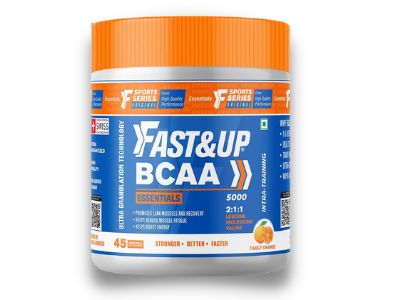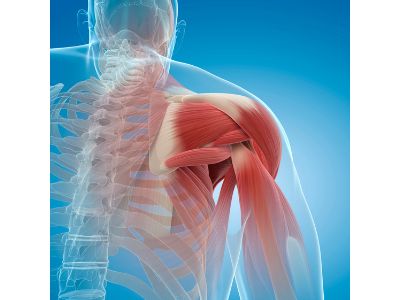People believe that powdered supplements have a direct connection with building muscles. While that may be true, some supplements should be avoided.
As far as BCAAs are concerned, they can be helpful to you.
If you are unaware of the benefits and facts that BCAAs provide, keep reading. This article will walk you right through it.
What are BCAAs?
To understand BCAAs (Branched Chain Amino Acids), you need to understand what amino acids are. The essential compounds that play an important role in protein formation are amino acids.
All the different types of proteins present in the human body are made up of 20 amino acids. 11/20 amino acids are not considered essential, whereas 9/20 amino acids are considered highly essential.
The term ‘essential’ means that your body won’t make any more of those. However, the non-essential amino acids can be produced by the body itself.
There are additional subcategories to the essential amino acids present in the body. BCAAs are included in the additional subcategories, although there are three types of BCAAs.
- Leucine
- Isoleucine
- Valine
Since an additional branch extends from the side of these three amino acids, the structure of these amino acids is unique. They are also packed with benefits that other amino acids do not offer.
Do BCAAs help you build muscle?
If you are regular with your diet and training routine, BCAAs can help you build muscle. The primary ways in which they work are-
1. Muscle protein synthesis:
When we take into account muscle building, we can say that leucine offers the most benefits out of the three branched-chain amino acids. This happens because muscle protein synthesis has a pathway stimulated by leucine.
After heavy workouts, when your muscles are damaged and need replenishment and repair, the process where protein helps in muscle repair is known as muscle protein synthesis.
It is an antonym for muscle protein breakdown since instead of losing protein, you are gaining protein. The primary objective of muscle protein synthesis is to make sure that your muscles have enough protein in your body to outpace muscle protein breakdown.
If you consume leucine in an adequate quantity, it can help you carry on with muscle protein synthesis.
2. Reduced post-workout soreness:
Branched-chain amino acids help you repair the damaged muscle and try to reduce the muscle damage that could occur in the first place. This is why after consuming BCAAs, you don’t feel as sore as you would without them.
BCAAs reduce issues like skipping the next workout or not getting out of bed because of muscle soreness. BCAAs make sure that you are consistent when it comes to your training.
Including BCAAs in your diet can help you achieve the goal you have been trying to achieve faster.
3. Increased stamina:
People who include BCAAs in their diet have been able to work out more effectively and efficiently. BCAA helps in increasing stamina and decreasing fatigueness after training.
Since BCAA supplements help prevent the buildup of tryptophan, which is one of the 20 amino acids, it reduces fatigueness. Tryptophanyour mood and is associated with sleepiness.
When there is a decrease in BCAA levels, the level of tryptophan automatically rises. So if you include BCAAs in your diet, it can help reduce tryptophan levels.
If you don’t feel fatigued and are more focused on your workout, you will achieve your goals sooner than you thought.
4. Easier muscle maintenance:
BCAAs are great when you have a goal of a lean and muscular body. Including BCAAs in your diet is a great way to maintain those muscles. Branched-chain amino acids help in reducing muscle breakdown.
So even when you are not eating many calories or are following a calorie deficit diet, BCAAs will reduce your chances of losing muscle. Nonetheless, this helps the metabolism function properly and burn more calories during your training.
How much BCAA should be consumed in a day?
A BCAA supplement with 7 g of BCAA in it will be enough to see a visible difference for ordinary people.
However, some people would have to take multiple servings of BCAAs. This is referred to the people who do not have a BCAA-rich diet.
For example, vegans and vegetarians do not get branched-chain amino acids from whatever they consume. This happens because the plant-based protein they rely upon does not have BCAA in the desired quantity.
Which BCAA supplement is beneficial for you?
There are 2 different types of BCAA supplements that you can consume.
1. BCAAs with EAAs:
Some BCAA products available in the market are rich in EAAs (Essential Amino Acids). Vegans, vegetarians, and other people worried about their protein and amino acid intake can go for these types of BCAA supplements.
The best part about BCAAs with EAAs is that it comes with electrolytes that provide your body with adequate hydration. So it just does not only help in building your muscles, but it also helps keep you hydrated.
2. BCAAs with Caffeine:
People who struggle with feeling fatigued during and after training can go for BCAAs with caffeine. As the name suggests, these BCAA supplements contain 125 mg of caffeine that helps you feel energized and powered up.
These types of BCAA supplements are used as a pre-workout.
The bottom line-
It does not matter which branched-chain amino acids you go for until you include them in your diet. Giving your body enough protein to recover muscle damage is very important.
In the comment section below, let us know which BCAA supplement you prefer and why.





